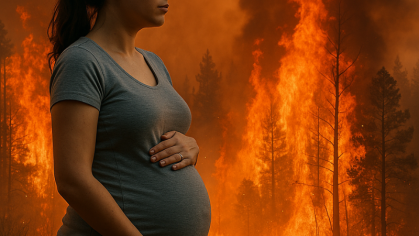Rutgers Alumni, Graduate Student Suggest New Term for Anxiety about Returning to the “New Normal”

GSAPP graduate student and alumni collaborated on a survey to analyze concerns about resuming pre-pandemic activities
Returning to work, school and everyday activities is leaving many individuals who hadn’t suffered from anxiety before the COVID-19 shutdown with Pandemic-Acquired Risk Avoidance (PARA) – a new way that psychologists characterize pandemic-related stress and anxiety.
“The Delta variant has compounded the situation,” said Dorothy W. Cantor, a psychologist and member of GSAPP’s first graduating class of 1976. “Based on our observations, the variant and its rapid contagion have likely reignited people’s anxieties about resuming pre-pandemic activities and that they should consider that to be a normal reaction to an abnormal set of circumstances rather than pathology.”
Cantor, Zoe Verrico, GSAPP alumni and psychologists Rosalind Dorlen and Bonnie Markham, and other colleagues polled 800 people between March 22 and April 16 about their stress and anxiety relating to the ongoing pandemic, vaccination status, and their anxiety about resuming pre-pandemic activities.
The group of psychologists met at the pandemic's start in virtual sessions. They wondered why many people, including those vaccinated, exhibited concerns and anxiety about resuming pre-pandemic life, which led to the search for a graduate student who could aid in studying the question.
The survey found that almost 25 percent of participants reported not feeling stressed or anxious before the pandemic, compared to only 10 percent not feeling stressed or anxious during the pandemic. Of the 25 percent of participants who did not feel stressed or anxious before, 33 percent felt somewhat stressed and anxious during the pandemic. While only 4 percent of participants reported feeling very stressed and anxious before the pandemic, the percentage jumped to 22 percent.
When asked about stress and anxiety relating to resuming pre-pandemic activities, 52 percent of participants reported feeling somewhat stressed or anxious, and 19 percent reported feeling moderately stressed or anxious.
Strictly speaking, almost 75 percent of participants are experiencing pandemic-related stress and anxiety even though they hadn’t previously reported symptoms of generalized anxiety disorder, social anxiety, phobias or post-traumatic stress disorder before the pandemic. Instead, their concerns and hesitancy relate to resuming pre-pandemic activities, such as dining out, traveling and attending in-person events.
The psychologists say people should be patient with themselves if they are experiencing this kind of anxiety, and that the anxiety should not be pathologized given the unprecedented circumstances in which it has appeared. Resuming pre-pandemic life should be done gradually, starting with less risky activities, following medical and scientific information, and avoiding misinformation.
Verrico assisted the five psychologists by designing the survey on Qualtrics, disseminating the survey via social media, and subsequently analyzing and summarizing the raw data. The second-year GSAPP graduate student commented, “It is critically important for people to understand that the stress and anxiety they are experiencing is not the result of a clinical diagnosis or pathology, but due to what we have named PARA. Having the opportunity to work with these five psychologists was an absolute honor and I have learned so much from them.”
Other psychologists who collaborated on the survey include Laura Barbanel and Phyllis Tobin.


